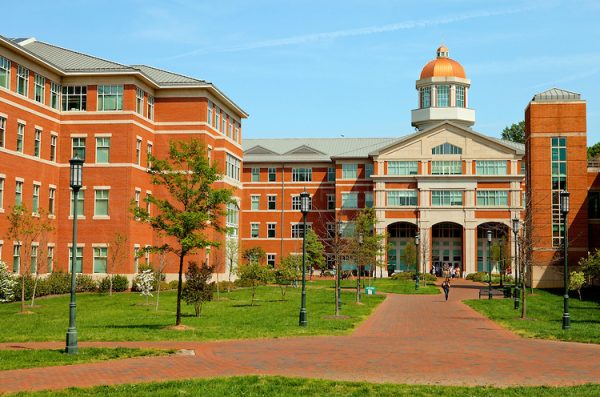UNC Charlotte Program Addresses Need for Latino Mental Health Services

An unfolding partnership between an interdisciplinary team at UNC Charlotte and the Camino Community Center is helping to address the mental health needs of Charlotte’s Latino community.
Faculty from the Colleges of Education, Health and Human Services, and Liberal Arts & Sciences collaborated with Camino Community Center leadership to establish a community-based mental health improvement program through the center. Camino and the health clinic housed within its walls provide services to low-income and immigrant families. Through the program, doctoral and masters students from the Department of Counseling and the Health Psychology Program currently offer mental health services at Camino under the supervision of UNC Charlotte faculty advisors.
Wendy Mateo-Pascual, Executive Director of Camino Center, said a significant number of clients there are in need of mental health support.
“Many have experienced or witnessed severe trauma such as war, physical and sexual violence, or prolonged exposure to verbal and emotional abuse.”
As a result, many suffer from post-traumatic stress disorder or borderline personality disorder, she said.
Latinos are the fastest growing ethnic group in Mecklenburg County, and are more likely to be uninsured than any other ethnic group.
UNC Charlotte counseling professor Daniel Gutierrez is an architect of the new program. He says Hispanics are statistically less likely to receive mental health care than other groups, and when they do, it tends to be lower quality than what is offered to the majority culture.
“That is unacceptable. We developed this project because we saw substantial unmet need in Charlotte, and wanted to do something about it.”
The partnership with Camino is the result of efforts undertaken through the College of Health and Human Services based ARCHES Program. ARCHES – the Academy for Research on Community Health, Engagement, and Services – brings together social science and health faculty from across four colleges for the purposes of engaging with the community to improve health outcomes and quality of life.
ARCHES Director Mark DeHaven noted that while genes and healthcare access play a role in health outcomes, studies have shown social factors are twice as important.
“Disease often results from the conditions in which one lives – neighborhood conditions, access to healthy foods, personal safety, economic security, good education, safe and healthy housing, and a host of other social conditions,” he said. For this reason, DeHaven argues a team-based approach involving stakeholders and clinicians from across the community is the only way to adequately address poor health outcomes among the underserved.
UNC Charlotte and Camino are in the process of exploring ways to expand the university’s involvement at the center, DeHaven said.
“What we envision is a holistic, comprehensive, coordinated, and seamless wellness center for vulnerable immigrant and uninsured individuals who use Camino Community Center / Bethesda Health Center, and which combines the missions and expertise of Camino volunteers and staff and ARCHES affiliated faculty and interns from across the entire UNC Charlotte campus.”
Ed Wierzalis is clinical program coordinator for the counseling department at UNC Charlotte. He said the partnership with Camino offers an unprecedented opportunity for students to develop cultural competence, and reflects an underlying philosophy of the program.
“We intend to make our commitment to serving the needs of the underserved populations in our community a reality and not just a statement in our program mission.”
Coverage of this story from WFAE, Charlotte’s NPR affiliate.
by: Wills Citty